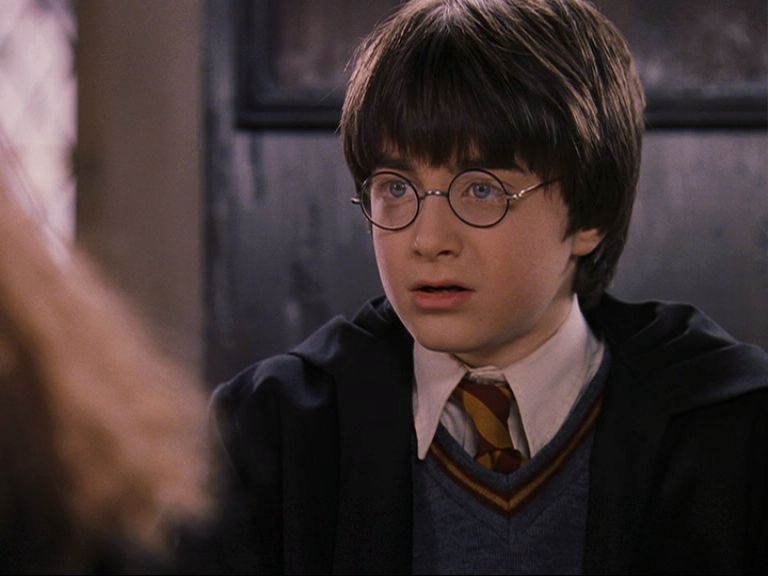 For those that have read Harry Potter, it's hard to read Mr. Potter in anything other than Professor Snape's cutting tongue. His tone is instrumental in giving us an alternate observation of our young hero that informs us about the complicated world in which they all live. Nothing is ever purely good or purely evil. It's this revelation, among others, that is one of the many reasons that Harry Potter is beloved by many. However, I feel that for all its fantastic elements, the tale of Harry Potter is a coming of age story.
For those that have read Harry Potter, it's hard to read Mr. Potter in anything other than Professor Snape's cutting tongue. His tone is instrumental in giving us an alternate observation of our young hero that informs us about the complicated world in which they all live. Nothing is ever purely good or purely evil. It's this revelation, among others, that is one of the many reasons that Harry Potter is beloved by many. However, I feel that for all its fantastic elements, the tale of Harry Potter is a coming of age story.We first meet Harry Potter as a young boy who is being mistreated and neglected by none other than his aunt and uncle; people who we would otherwise expect to be supportive and loving. It's this relationship that helps us first sympathize with him and wish him a better future. His beginnings are the beginnings of every orphan who dreams that his parents will return and his life will somehow be more. When Hagrid arrives to whisk him away, revealing that Harry is a wizard, his (and our) dreams come true.
If that were where the tale ended, it would simply be in the realm of fantasy - perhaps even something akin to a Grimm's fairytale. But the story continues and the innocence of the beginning gives way to something darker. It shows that life isn't a fairytale and that there are real-life consequences for living it. Granted, we aren't all tormented by the specter of an evil wizard overlord-wannabe, but we all have our demons to face. Ours just don't happen to be literal...most of the time.
This shedding of the light and introduction to darkness, with the message that you have to fight against that which isn't right, is a large part of growing up that most children aren't exposed to. For the most part, we try to protect our children from the nasty things in life until we believe they're old enough to understand it. J.K. Rowling introduced us to a new way of teaching our children about the realities of growing up by introducing us to Harry Potter.
 Consider the transformation of Harry throughout the series. When first we meet him, he is a fresh, innocent-looking lad whose excitement outweighs any hesitation. His attitude is naively optimistic and negative thoughts are far from his mind. Yes, there is the weight of being "the boy who lived" on his shoulders, but he's only just learned of this so its impact isn't as great. His interactions with people are generally positive and he is quick to trust.
Consider the transformation of Harry throughout the series. When first we meet him, he is a fresh, innocent-looking lad whose excitement outweighs any hesitation. His attitude is naively optimistic and negative thoughts are far from his mind. Yes, there is the weight of being "the boy who lived" on his shoulders, but he's only just learned of this so its impact isn't as great. His interactions with people are generally positive and he is quick to trust.Contrast this with the Harry we come to know by the end of Deathly Hallows. He is a battle-hardened soldier who has been forced to watch his friends and loved-ones die at the hands of Voldemort. The consequences of being "the boy who lived" have been fully realized and his attitude and optimism have changed. Even the tone of the novel changes at this point with Harry facing hard choices and adult responsibilities. He is no longer the boy we knew at the beginning, his innocence long since shattered. By the end, through his experiences, we all grow up a little. So while the setting is deeply set in the fantastic, it is - overall - a story of innocence lost.

No comments:
Post a Comment